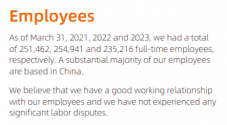Yes, I understand.Semantics here are not going to matter - but what I specifically mean here, is that when restaurants are not making money, they will fire workers and close down.
These are the bottom rungs of society who are supposed to be on the receiving end of 'increasing disposable income'. How they increase their disposable income when they lose their jobs, is a question you should think about.
But don’t you also have to take into account the falling costs of those restaurants? if their electricity bill is reduced, along with rent and most importantly food costs then they have more room for profit.
Basically, if costs reduce at a faster rate than wages, what’s they problem?
EDIT: Disposable income is not semantics, it’s crucial to the idea that falling prices due to increased productivity doesn’t reduce consumption. For example. If your income is frozen for a few years, or even drops slightly, while your mortgage interest rate is reduced, and you tax is reduced, then your disposable income will grow and then your consumption has plenty of room to grow. You will also be getting more from your disposable income because prices are reduced.
Last edited:

